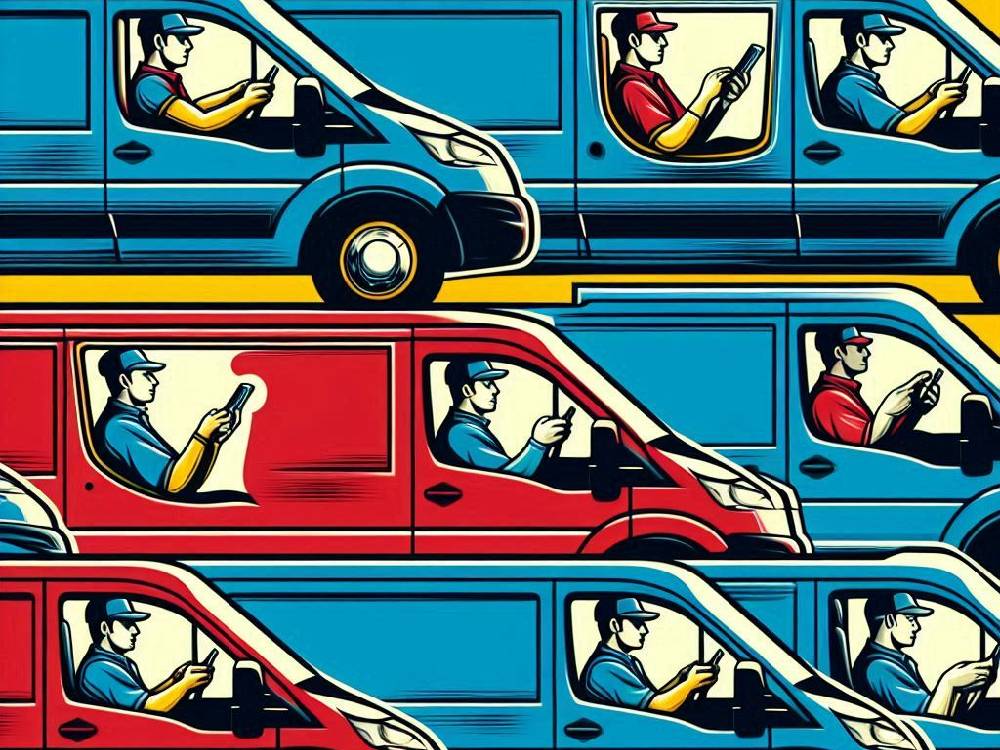Introduction
The use of mobile phones while driving is a growing concern.
Recent studies have shown that van drivers are “twice as likely” to use their phones while behind the wheel compared to car drivers.
This dangerous behaviour puts the lives of drivers and other road users at risk.
It could also have significant consequences for van drivers’ insurance policies.
Demands Of The Job Versus The Dangers Of Distracted Driving
One of the main reasons for the high rate of mobile phone use among van drivers is the demanding nature of their job.
Van drivers often need to make calls, send text messages, or use GPS navigation while on the road.
They may feel that they need to be constantly connected to perform their job effectively.
However, the use of a mobile phone while driving is dangerous and illegal, and it increases the risk of accidents on the road.
The High Cost Of Mobile Phone Use For Van Drivers
The dangers of using a mobile phone while driving are well documented.
Distracted driving is a leading cause of accidents on the road.
Using a mobile phone takes a driver’s attention away from the road, even for just a few seconds.
This can result in a crash, and it can also result in a fine or loss of points on a driver’s licence.
Furthermore, using a mobile phone while driving can also be a criminal offence.
This can carry a jail sentence and also have an impact on a van driver’s insurance policy.
Insurance companies consider a driver’s behavior when setting policy prices.
They view using a mobile phone while driving as high-risk behavior.
Insurance companies can void a policy if they find the driver at fault.
This might make the driver liable for paying for the damages and injuries from an accident, which could be financially devastating.
How To Reduce The Use Of Mobile Phones While Driving Among Van Driver In the UK
One solution is to increase enforcement of the law through increased police presence on the road.
And the use of technology such as cameras that can detect mobile phone use while driving.
Employers can also play a role in reducing mobile phone use among their employees by setting clear policies, providing training,
and ensuring that employees have the tools and resources they need to perform their job without using their mobile phones while driving.
Another solution is to encourage the use of hands-free technology while driving.
This can include hands-free headsets, voice-activated controls, and dashboard-mounted devices.
These tools can help drivers keep their hands on the wheel and their eyes on the road.
Thus reducing the risk of a crash and improving their insurance situation.
Conclusion
The trend of van drivers using mobile phones while driving in the UK is a concerning issue that needs to be addressed by increasing enforcement,
encouraging the use of hands-free technology, and raising awareness.




